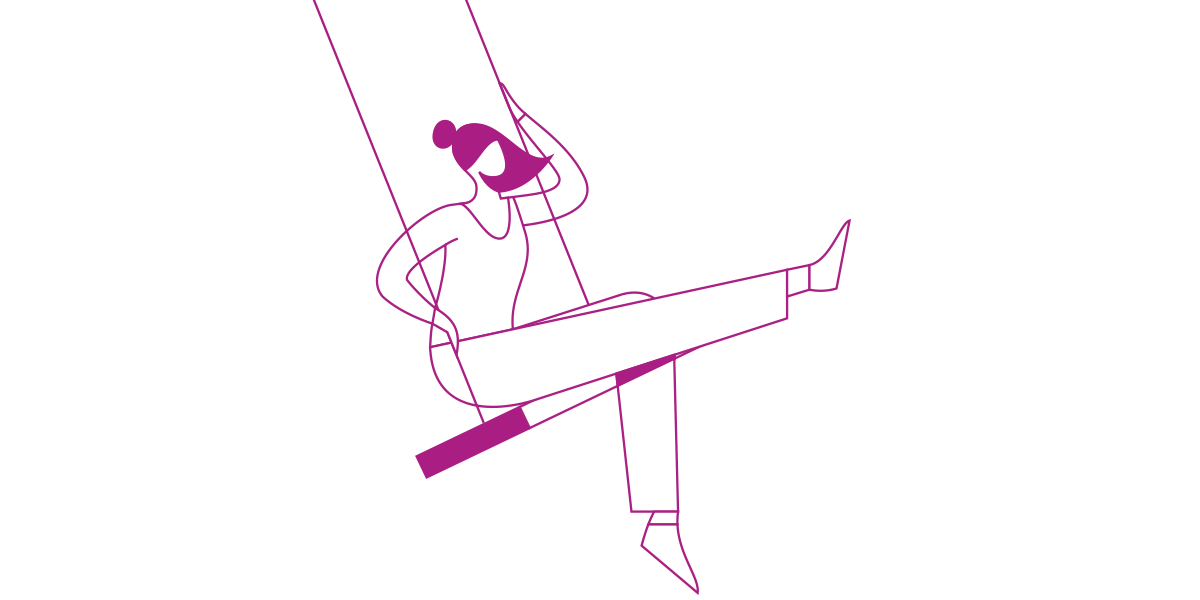Ten years ago, Psychologie Magazine started offering online training. Since then, more than 44,000 participants have started a training course and the Psychologie Academy has grown into a solid platform for personal growth, says managing editor Sterre van Leer. For the last two years, this has been done in collaboration with Minddistrict.
 Sterre van Leer, managing editor of Psychologie Magazine
Sterre van Leer, managing editor of Psychologie Magazine
‘Psychologie Magazine has been a pioneer in the field of online training,’ says Van Leer. ‘Ten years ago, there was a huge gap between self-help books and magazines like ours, on the one hand, and deciding to have actual therapy – which is actually a barrier for many people. So we saw opportunities there. With our online training courses, we have been able to support our readers in their development in an easily accessible, positive way.’
This fits in perfectly with the brand’s mission, according to Van Leer. Psychologie Magazine makes insights from psychology accessible to a wide audience. Findings from science are translated into concrete, applicable insights that readers can use to get started.
In 2018, we celebrated 10 years of Minddistrict. For this purpose, we've gathered the best stories of the last 10 years and interviewed customers and partners. You find these stories in the series 'Anniversary interviews'. Do you want to know about 10 years of Minddistrict? Get in touch.
The first online training
‘We started with a few topics which we knew were popular among readers, and where we felt Psychologie Magazine could really add something, because they lend themselves well to the self-help approach, and aren’t too heavy or complicated to tackle in such a form.’ For each topic, a psychologist was sought with expertise in that specific field, in order to help determine the content. The first online training course was launched at the end of 2008: ‘Increase your self-confidence’, in collaboration with psychologist Fred Sterk. This was followed by ‘Think yourself thin’ (losing weight with psychological techniques), ‘Discover your talent’, ‘Letting go’ (based on Acceptance and Commitment Therapy) and ‘Mindfulness’. Participants explore the topic by means of self-tests, written assignments, videos and diary exercises and working on their learning goals over the course of a number of weeks.
”For each training, we worked together with an expert from the specific field”
‘Think yourself thin’ has been one of the most popular training courses since that initial phase. ‘In just a few weeks, you will learn to lose kilos as a result of behavioural change, instead of paying attention to your diet,’ explains Van Leer. What’s more, this type of change will have a demonstrable lasting effect. ‘You wont gain anything by never eating crisps again, but rather by understanding your eating habits and your personal pitfalls – like mindlessly eating crisps on the sofa, for example. Luckily, you can also teach yourself healthier strategies.’ According to Van Leer, there are millions of women in the Netherlands who spend endless hours trying to lose weight, only to put it back on again and then start looking for yet another diet. ‘We think we have found a better solution to this age-old problem.’ Which is also evident from the response of participants. ‘I have finally been able to let go of my love–hate relationship with food,’ someone emailed, for example. ‘Now I can see the pattern and have really been able to learn from it.’ Or: ‘I give it a 10, because my goal of losing a few pounds has been achieved and I have developed permanently changed eating habits’.
Mobile friendly
Psychologie Magazine had itself commissioned the construction of the technical platform on which the training courses were run. But after a few years and some critical scrutiny, it was time for an update. ‘A tablet or smartphone is particularly well suited to working on your learning goals in a simple and easy manner. However, our own platform wasn’t very mobile friendly. So we asked ourselves: “Are we going to update the platform ourselves, or find a partner who can offer us a better alternative?”
”Reliability is one of our most important core values. Our users expect that their personal data will be treated with care”
‘We had decided fairly quickly to collaborate with Minddistrict. We were impressed by the technical possibilities and many handy tools the platform had to offer, such as the diary feature, which participants can use to keep track of their experiences,’ according to Van Leer. ‘But there was more. Reliability is one of our most important core values. Our users expect that we will take good care of them, that everything we offer is of a high quality and that their personal data will be treated with care. After all, the information they leave behind in the tracking process is about their personal pitfalls, their doubts, about how many kilos they want to lose. They share this information, and so we need to ensure it is kept safe.’ Minddistrict’s track record therefore also played an important role. ‘Because of their work in the health sector, Minddistrict is used to working with even stricter protocols and more sensitive information than we ask people to provide. So we were in safe hands.’
Hippy-dippy
Of the thirteen courses offered by the Academy, ‘Hypersensitivity as a strength’ is currently a real favourite. There is nothing hippy-dippy about hypersensitivity, explains the chief editor. ‘It’s been scientifically demonstrated that one in five people process stimuli differently in their brains. They are more sensitive to stimuli, which are also processed more deeply.’ As a result, highly sensitive people can’t handle as much simultaneous input and get tired or overwhelmed more quickly. However, they are also quicker to notice things, are more sensitive to the emotions of others and can enjoy music or art immensely.
Hypersensitivity can therefore be a handicap, but also a strength, according to Van Leer. ‘The course, which was launched in October last year, engages with this further. People start by gradually mapping out which situations they find difficult. They will also learn how to ensure that they have enough energy and can build up a reserve for times when they need it. They will also learn to appreciate their sensitivity as a special gift.’ You can’t change anything about the fact that you are highly sensitive, you are stuck with this trait throughout your life, says Van Leer. ‘It might really bother you that others can go to a noisy party while going would mean you’d be completely depleted for the rest of the weekend, but that doesn’t change anything. It therefore makes more sense and is kinder to yourself to ask yourself: “What do I like doing, and what don’t I like doing? And how can I organise my life to suit me?”’
”We really brought hypersensitivity to the attention of a wide audience”
Multiple channels
The editors decided to launch the course on a grand scale. ‘We presented a scientific hypersensitivity test to a series of well-known Dutch people who we suspected to be highly sensitive. We approached anyone with a high score for an interview. These included singer Karin Bloemen, illusionist Victor Mids and actress Liesbeth Kamerling. We produced interviews, videos and portraits that we could distribute via all our channels – but also digital ‘tiles’ with quotes that HSPs (highly sensitive people) could identify with, and which were extensively shared on social media. It went viral. For example, one ‘tile’, a kind of ‘user manual’ for HSPs, has been shared more than 700,000 times.
The campaign around the topic was a great success. ‘We really brought high sensitivity to the attention of a wide audience. This resulted in an enormous growth in social likes and followers. And within three weeks, we had sold a record number of training sessions – which was where it had all started.’

Luxury problems
Van Leer believes that it is a good thing that people are increasingly working on their own development these days. ‘This trend started some time ago and is not yet at its peak. We live in a world that is asking more and more of us as it becomes increasingly complex, but one which also offers us more opportunities than ever before. Most of us don't have to worry about whether we have something to eat tonight or a roof over our heads. That is a luxury. But this luxury also forces us to make choices.’ What do you want to make of your life? How can you stay yourself in a world that inundates you with stimuli? How do you make the right choices when there is so much to choose from? These questions won’t be going away anytime soon, but opportunities to take control are also growing, according to Van Leer.
”Opportunities to take control are growing“
‘In the digital age, it’s easy to get to work on issues that are important to you – using the many apps and ehealth solutions that are available these days, such as online training. The fact that you can work on it at your own pace, wherever and whenever you want, and whenever you have time or need some support, makes ehealth a keeper.’ Interactivity is also a major advantage. ‘You don’t simply receive the information passively – you really get actively involved. That’s the only way to make insights last. If you want to change something in your life, you have to practise.’
More variety
Psychologie Magazine will definitely continue to expand its Psychologie Academy. ‘First of all, we want to reach many more people with our products, because we really believe in this low-threshold form of self-care and self-development. But we are also constantly expanding the variety of our range. For example, our instructional videos, and our online master classes, in which participants can submit personal questions to experts, are all going very well. Events and real life master classes would also fit in well with this; that way you can offer even more depth.’
44,000 people have started a training course
700,000 people shared a single post about hypersensitivity on social media
Besides going deeper, the chief editor also sees the potential of short ‘two-minute training sessions’. ‘This would offer you useful facts, tips and tricks that you can apply while waiting for a train. That might be a scientifically based breathing exercise to help you focus or relax; or it might be tips for a difficult conversation with your boss that you could be having in the future. It’s safe to say we certainly have enough ideas to keep us busy for the next ten years or so!’
Enjoyed the read?
You might be interested in the other anniversary interviews too:
- ‘Thanks to ehealth, clients are able to help themselves.’
- 'Working online is not an ‘optional extra’'
- 'About 50% of all patients receive online therapy, which includes virtually every young person.'
Do you have other questions after reading this interview? Contact us
